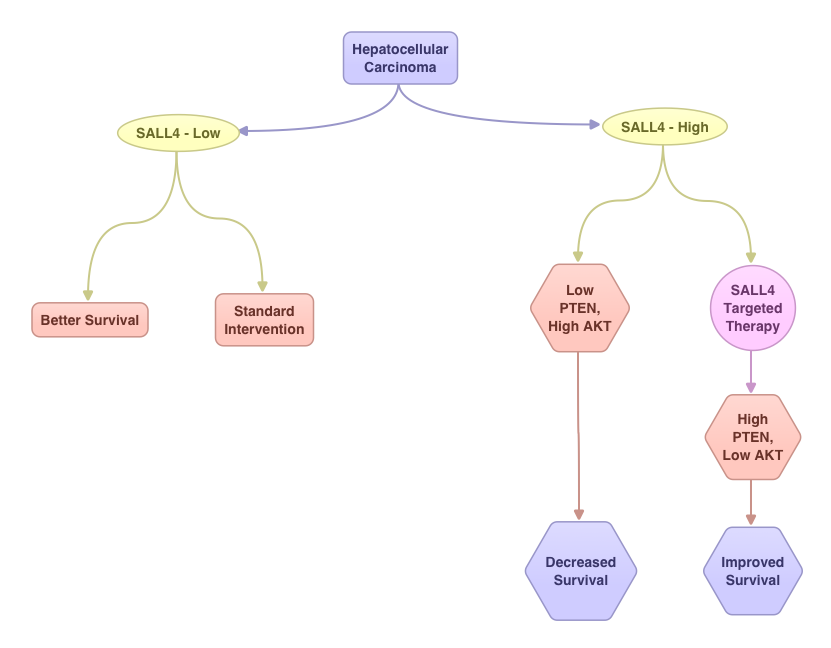SUMMARY:Hepatocellular Carcinoma (HCC) originates from hepatocytes and is the sixth most common cancer and third leading cause of cancer related death worldwide. Chronic liver injury and cirrhosis have been implicated as important risk factors. This may result from infections with Hepatitis B and C, heavy alcohol consumption, exposure to Aflatoxin, a potent carcinogen produced by Aspergillus species and non alcoholic fatty liver disease (NAFLD) seen in patients with obesity and diabetes. The underlying liver disease contributing to tumorigenesis adds to the molecular complexity of HCC. The standard intervention for advanced stage HCC has been multi receptor Tyrosine Kinase Inhibitor, NEXAVAR® (Sorafenib). Alpha Feto Protein (AFP) is normally produced by the liver and yolk sac of a fetus during pregnancy and decreases soon after birth. AFP has been used as a serological test for HCC surveillance. In this study, the authors evaluated the role of SALL4, an oncofetal gene, which is expressed in the fetal liver but silenced in the adult liver. In HCC, SALL4 is re-expressed in the tumor tissue and may play an important role in hepatocarcinogenesis and may also portend poor outcomes. SALL4 may therefore serve as an important biomarker and molecular target. Targeting SALL4 could increase the expression of tumor suppressor gene PTEN and block the PI3K survival signaling pathway, by dephosphorylating AKT. The authors concluded that testing hepatic tumor tissue for SALL4 at the time of diagnosis may have prognostic value and may identify patient groups who are likely to benefit from SALL4 targeted therapy. Yong KJ, Gao C, Lim J, et al. N Engl J Med 2013; 368:2266-2276


